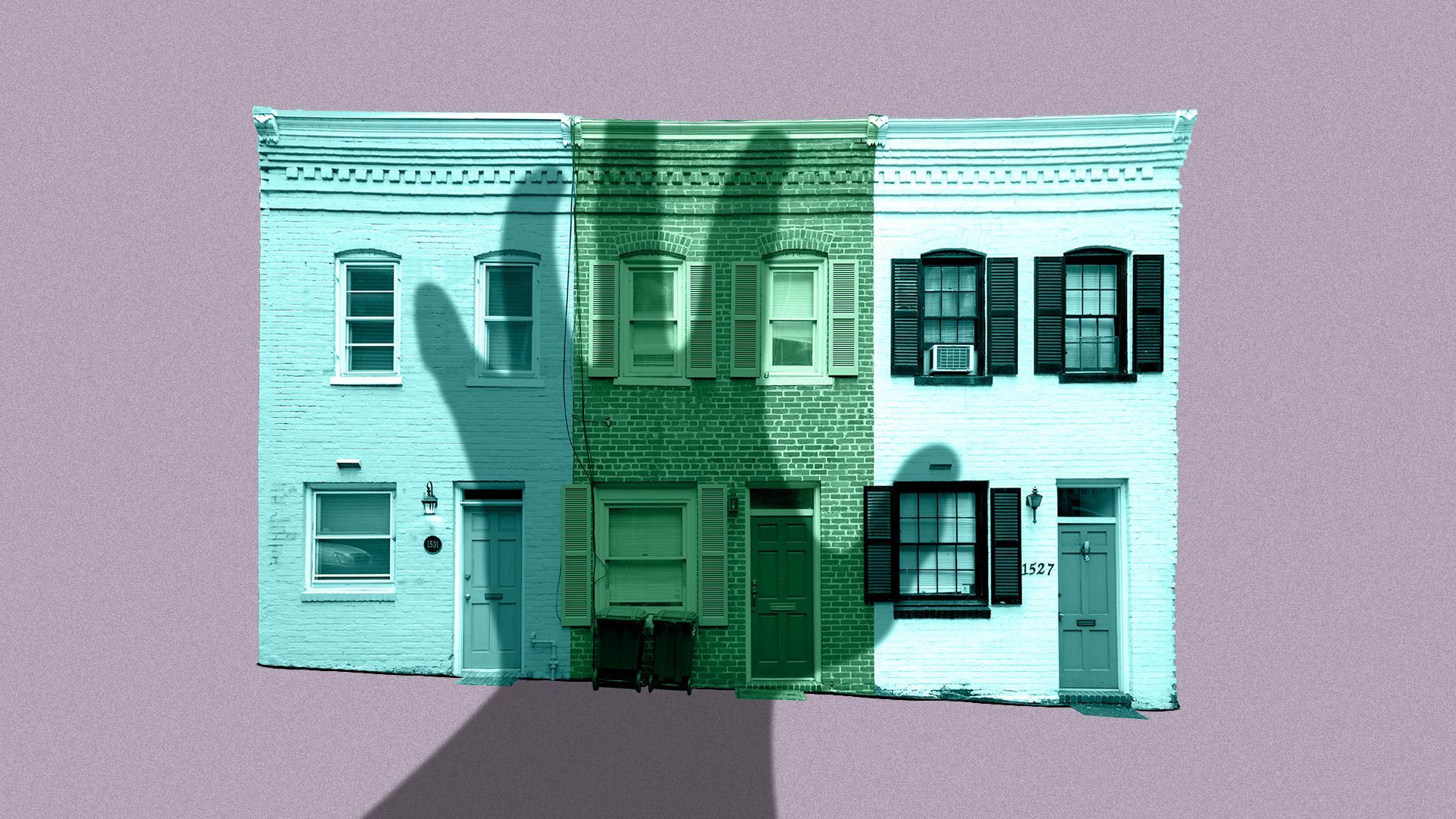Elderly D.C. residents are falling victim to housing scams
Add Axios as your preferred source to
see more of our stories on Google.

Illustration: Brendan Lynch/Axios
Elderly Washingtonians are falling victim to predatory — and often unlicensed — investors, developers, and scammers looking to profit off of their homes.
Why it matters: Redevelopment efforts are leading to displacement and diminished opportunity for intergenerational wealth for some of the District's oldest residents, who are often Black.
- The trend is highlighted by the decline in minority D.C. residents over the last few decades.
- The Navy Yard area was the hardest hit, with a 72% decrease in Black residents between 2000 and 2018.
What's happening: Developers are targeting communities, such Navy Yard, with skyrocketing property values and knocking on the doors of long-time homeowners who may be behind on their mortgage payments or property taxes.
- "They're all related," Deborah Cuevas Hill, a lawyer with Legal Counsel for the Elderly, says of falling behind on payments and falling prey to housing scams.
- "When someone faces hard times and has a hard time paying these bills, they are more likely to be preyed on by scammers."
Shady investors will frequently push "quick, hassle-free sales" even after a homeowner says they're not interested in selling. And most times these offers are far below the home's market value, Cuevas Hill says.
- She's seen cases where seniors unknowingly sell their homes by signing one single document and later get sued for not showing up to closing.
Be smart: The current moratorium on evictions makes it hard to track recent numbers on evictions and predatory behavior overall because new cases aren't being filed right now.
- Once the moratorium lifts, more longtime residents will be at risk of losing their homes.
What's next: While Attorney General Karl Racine's Elder Justice helps with housing scams targeting the elderly, Legal Counsel for the Elderly is advocating for additional changes.
- Expanded licensing requirements would prevent unlicensed developers and investors from being able to easily operate predatory businesses.
- Do-not-call and do-not-solicit lists would limit contact between scammers and elderly homeowners.
- Additional disclosures, especially regarding a home's market value, would help with transparency.
